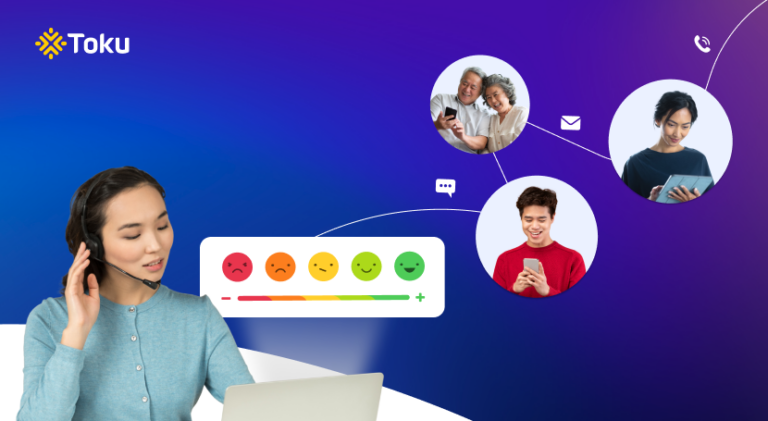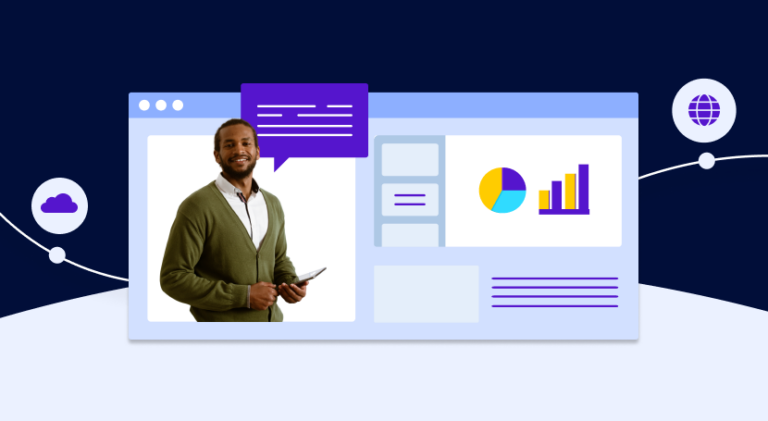Discover what the Customer Satisfaction (CSAT) Score is and how it informs contact centres about customer satisfaction with products and services.
Is your enterprise still relying on legacy on-premise Contact Centre software to manage frontline customer support?
If so, it is time to switch to a cloud-based CCaaS (Contact Centre as a Service). A powerful CCaaS allows a business to quickly scale up or down and meet customer needs, while still offering a quality customer experience.
If you need a refresher on the many benefits conferred by a CCaaS, look no further.
–> Read: 12 Must-Have CCaaS Features that Deliver Awesome Customer Experience
But what if you are in the market for a CCaaS vendor and not sure what to look out for?
Choosing a vendor simply because they are more ‘well-known’ might sound like an easy way out but could lead to several minor problems in implementation that then snowball into a huge unsatisfactory outcome for both your company and your customers.
One-size-fits-all solutions that you can buy off the shelf have a place in the market. However, when a company is rapidly scaling in multiple markets, and there is more complexity in their operations, finding a partner who can adapt their solutions to your needs is more important.
That is why in this post, we will walk you through a few ‘must-look-out-for’s when reviewing a CCaaS that will save you and your support agents a lot of headaches down the road.
1. CCaaS with robust telephony capabilities
Make no mistake. Your CCaaS is first and foremost a platform that supports your customer support calls. If it has a history of outages that prevent the phones from ringing when a customer calls, or cause poor voice quality during a call, that is a big non-negotiable.
To assess what the solution is capable of in the realm of telephony, it is useful to ask about the vendor’s connectivity in different countries that you expect to operate in. This is a commonly overlooked factor in the CCaaS decision but makes a significant impact in being able to provide hyperlocal support, globally.
Few CCaaS vendors are close to the connectivity source (which allows them to cut out the middleman and improve the quality of the connection). So, make sure you are only considering solution providers whose regional connectivity aligns with your enterprise’s regional expansion plans.
2. Timely, insightful, accessible call reports
If your supervisors are trying to improve agent performance, but their contact centre solution takes 24hrs to run reports on simple metrics like average handle time and number of missed calls, this will make it near impossible to respond to problem areas in real time (an increasingly key factor in modern contact centres).
This is why reporting capabilities like real-time dashboards and insightful reports on agents’ and call centre performance are so critical! When assessing your CCaaS vendor, make sure to ask about “real-time” call-centre metrics and ability to integrate real-time data with CRM and other business systems (e.g., BI Tools, WFM Tools, Teams, etc).
You can also ask for screenshots of the dashboards, then get your supervisors and managers to review them for user-friendliness, and usefulness. Toku’s omnichannel contact centre platform for example allows managers to view the reports with just the click of a button.
Need to collect all your contact centre reports, performance data, and data from product inside your organisation’s data warehouse so you can drill-in the data?
Make sure your CCaaS provider allows you to download the data through APIs that will connect with your data warehouse.
3. Omnichannel capabilities
A truly modern CCaaS will be strong in not just one or two communication channels.
It must have omnichannel capability to deliver a seamless cross-channel customer experience that more and more customers have come to expect as a given.
Furthermore, the cloud contact centre platform must ensure all communication channels are accessible on the same screen, and that supervisors/managers can monitor agent performance from the same place.
Here are some questions you might want to ask a CCaaS vendor to assess their omnichannel strengths:
- Can agents access interactions from different channels on the same interface?
- Can it escalate a chat to a phone call?
- Can messages from customers be escalated automatically when a response is not given in a timely manner?
With a cloud contact centre solution that brings omnichannel support, you’ll be able to meet the expectations of customers who contact the company via multiple channels and need fast, relevant answers. Agents will be armed with access to all customer interactions across channels in one place, which will enable them to waste less time opening separate windows for multiple channels, resolve queries for customers faster, and deliver a superior customer experience.

Get monthly nuggets of wisdom for all things customer experience in your inbox
4. Deep CRM integrations
Your customers want to get their issues resolved quickly when they call you. Moreover, they do not like to repeat information they have already provided during an interaction.
In fact, we discovered in our market research that over 60% of Singapore consumers expect companies to keep a history of their previous interactions (so they don’t have to repeat their information again and again).
–> Read: Creating Seamless Customer Experiences: What Singapore Consumers Really Expect in an Interaction
This is why one of the most important items to check off on your list is finding out how the Contact Centre as a Service (CCaaS) solution integrates with your CRM.
Some features to query the vendor about include:
- How the software integrates with your CRM via screen pops
- Where is the CTI displayed on the computer screen? Is it pinned or floating?
- How auto-call logging with the CRM is done
- Details on “call-routing” logic and how it syncs with your CRM’s routing logic
- Ability to speak to custom objects and custom fields within the CRM system
- Can calls be routed based on CRM data?
- Details on CCaaS ability to auto-create new records, populated with relevant details from call/caller with the CRM for both inbound and outbound calls
- Any pre-built automations they have with your CRM
- How the vendor handles custom integrations?
With a well-integrated CCaaS, your business can increase customer retention with a fast and seamless support experience.
5. Extensive customer surveying options
If your business is serious about building a customer experience that wows customers and keeps them coming back for more, you need systems that collect customer feedback for improvement.
Post-call surveys allow your customer support to gather feedback on the contact centre experience through voice or SMS surveys. You will want to ask your Contact Centre as a Service (CCaaS) provider about what type of post-call survey features they offer through their platform. Go in depth on which channels they leverage and the settings you can select from for frequency, etc.
As you grow to understand your audience, you will discover that many boilerplate survey questions might not be relevant to your business needs. Hence, be sure to query the vendor about the ability to customise survey questions.
And if you have management who is actively involved in building the brand’s customer experience, they will want to be kept in the loop any time a customer submits a poor post-call survey result. A CCaaS that comes with built-in triggers to alert management in this scenario will come in handy.
6. Self-service options for better contact centre customer experience
For many basic enquiries, customers often prefer to resolve the issue on their own without an agent having to intervene. For this type of query, it helps if the CCaaS provides self-service options across touchpoints.
To assess the contact centre solution’s self-service capabilities, first, look out for Interactive Voice Response (IVR) functionality. A good one should be flexible, scalable and enable callers to self-serve or match them to the right agent at any given time.
Remember that as your enterprise grows and starts entering new markets, your requirements of scale and complexity will evolve. Having an IVR with flexible configuration will allow contact centre managers to make changes to the IVR flow options and adapt features to their needs accordingly.
7. Dedicated one-to-one support
Getting the right Contact Centre as a Service (CCaaS) for your organisation is one thing.
Ensuring the solution provider is giving dedicated after-sales support, does the heavy-lifting during the deployment phase, technical documentation, and helping you to scale the contact centre while training your staff on implementation, is another.
It demands a distinctly anti-cookie cutter solution.
In fact, this is exactly what distinguishes a flexible, bespoke solution partner who ensures the long-term success of a contact centre.
Here is what you should look out for in terms of one-to-one support if you want to avoid providers with a cookie-cutter solution:
- What is the CSAT (customer satisfaction) rating for their support team?
- Details of their customer support workflow when your agent/supervisor needs same-day assistance
- Ask for SLAs (service-level agreements) on the past 6 months for same-day support follow up and resolution times
The right CCaaS is a long-term partner for your business
If you have big plans for the customer experience at your enterprise, finding a CCaaS that you can establish a long-term partnership with is essential. This also means they should share the same values as your business.
As you explore additional support channels to incorporate into your customer experience strategy, a long-term CCaaS partner who understands your business needs will be able to customise the right integrations and solutions for you.
 V K Sanjeed
V K Sanjeed 


 Girish Dharmaraj
Girish Dharmaraj 
 Nora Huin
Nora Huin